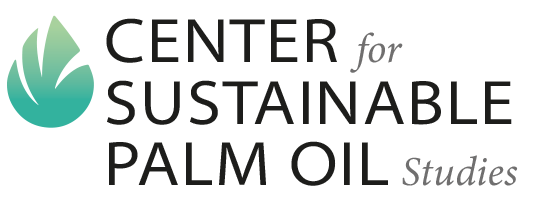
The European Union must transform its approach to trade deals for the world to avoid another pandemic. This is all the more pertinent in light of the EU pushing ahead with efforts to finalise its trade deal with the South American Mercosur states of Brazil, Argentina, Paraguay and Uruguay. The fundamental problem is that precisely as these negotiations continue, the deforestation of the Amazon has accelerated by as much as 35%.
According to Brazil’s own National Institute for Space Research (INPE), more than 9,000 km2 of rainforest were cleared in the Brazilian Amazon region between August 2019 and July 2020. And while the Amazon could be rapidly approaching a tipping point that would lead the rainforest to not only dry out but become a carbon source boosting dangerous climate change, a recent World Wildlife Fund (WWF) report states that deforestation could also trigger the next pandemic. COVID-19 was, that report concludes, a direct result of the destruction of natural ecosystems and human encroachment into wildlife. Further deforestation could unleash new global crises – from climate change to pandemics and biodiversity collapse.
Both Germany and France have indicated they may veto the deal – a measure that has been supported by environmental groups like the Climate Action Network (CAN). Indeed, the EU’s clear eagerness to seal the deal raises questions about the bloc’s commitment to ending deforestation. The good news is that the EU’s trade balance may provide important leverage in tackling deforestation in a world reeling from economic turmoil in the age of COVID-19. But that requires the EU to adopt a different approach – one that sees trade as a tool to create new markets consistent with ecological principles.
A major inconsistency is evident in the EU’s current approach. While avidly pursuing a trade deal with the Mercosur bloc – despite beef production being the number one driver of global deforestation – the EU has simultaneously implemented a blanket boycott of palm oil for biodiesel. Meanwhile, the EU continues to import beef from the Amazon – and as much as a fifth of these imports are confirmed to come from illegally deforested zones. The EU has, in short, given a green light to the worst drivers of deforestation in the world.
The EU’s trade talks with South America, ASEAN, India, and other economic powers should focus much more on incentivising green recovery
The policy mismatch is remarkable. A recent study in Global Environment Change has concluded that beef production in South America and Africa accounts for 34% of carbon emissions induced by deforestation. Meanwhile, palm oil produced in Asia accounts for 14% of emissions, which is less than half of the total emissions from beef production. Why the urgent emphasis on palm oil, compared to the relaxed approach to beef?
The preferred response of some environmental groups – to merely keep boycotting an ever-expanding list of problematic commodities – is not the answer.
Numerous studies show that boycotting palm oil, for instance, will simply switch demand to other vegetable oils – ones that use more land, water and fertiliser than palm oil. This means that they will drive far greater rates of deforestation. Alternatively, boycotts can incentivise exports to other regions with far lower environmental standards. So simply calling for an end to trade with Mercosur could lead these states to attempt to find other markets while continuing to accelerate deforestation. Either way, it is the forests and the environment that suffer.
The real solution is in using trade as a mechanism to engender more standardised cooperative approaches across all relevant commodities, rather than singling out just one. Thus, the EU’s trade talks with South America, ASEAN, India, and other economic powers should focus much more on incentivising green recovery – whilst simultaneously applying strict sanctions for failure to meet environmental standards.
That’s why the recent call in a report by the European Parliament Committee on Agriculture and Rural Development for new inclusive trade partnerships with the global South to address deforestation is so timely. The Committee warns that only mandatory, legally enforceable environmental standards can stop deforestation.
But it also notes that such standards cannot be imposed unilaterally. Working in partnership with the global South, coupled with an assertive ‘carrot and stick’ approach to trade deals whereby nations that meet environmental standards are put on track for free trade agreements, would be a huge step in spurring a global green economic revolution.
We must gradually downsize our impact on nature and replace it with a model that is more in keeping with its patterning
The question, of course, is this: why, while actively importing deforestation-linked beef from Brazil, is the EU still not working more closely with a country like Malaysia, whose nationally-mandated ‘MSPO’ certification scheme, according to The Ecologist magazine, has recently been proven to be contributing to a real decline in the rate of deforestation over the last three years?
The disparity between the EU’s approach in Malaysia and in Brazil is a sure sign of deeply flawed and confused priorities. But the solution in both cases is the same: by incorporating stringent ecological requirements into trade negotiations with all parties across all relevant commodities, the EU can incentivise rapid transitions to more sustainable production practices that conserve, instead of degrade, our precious forests.
In the grander scheme of things, however, we are still fundamentally compromised. The linear economic model that has kept the modern world moving is, at its core, incompatible with the cyclical mode of the natural world. To best guarantee that our world averts future pandemics and global crises, we must gradually downsize our impact on nature and replace it with a model that is more in keeping with its patterning.
Beginning that journey with major global trading powers leveraging their trade influence to engender permanent, sustainable change could well be the first step in that long, but necessary process.
By Fazlun Khalid
Original link: https://www.friendsofeurope.org/insights/the-eu-must-act-against-amazon-deforestation-before-its-too-late/


